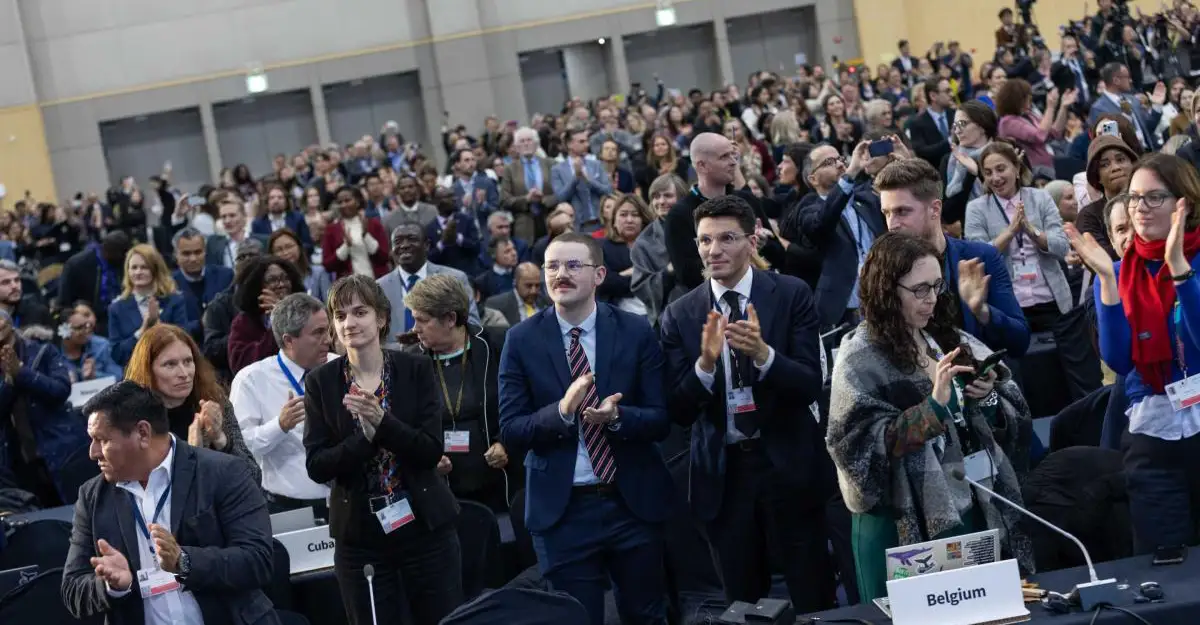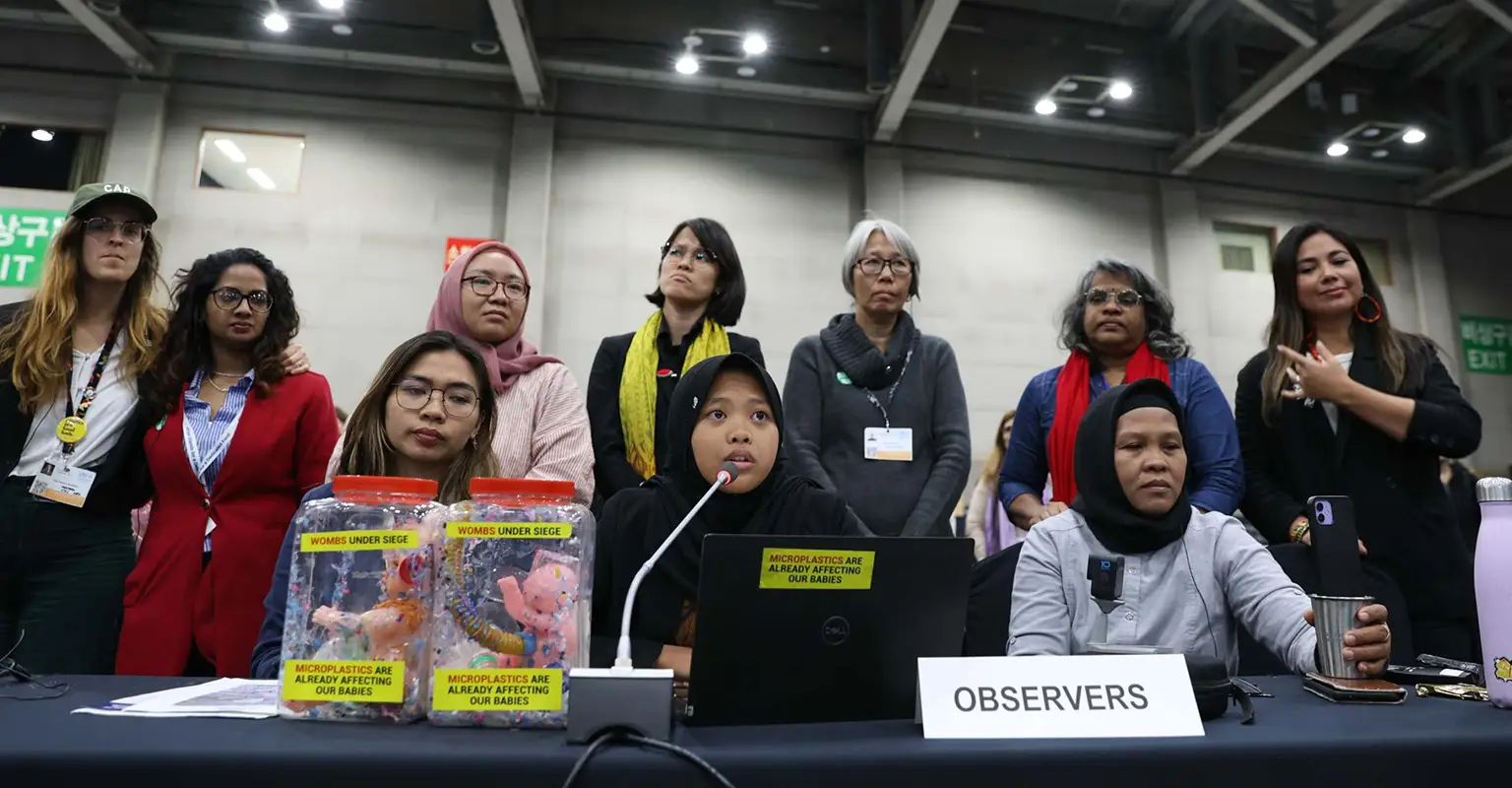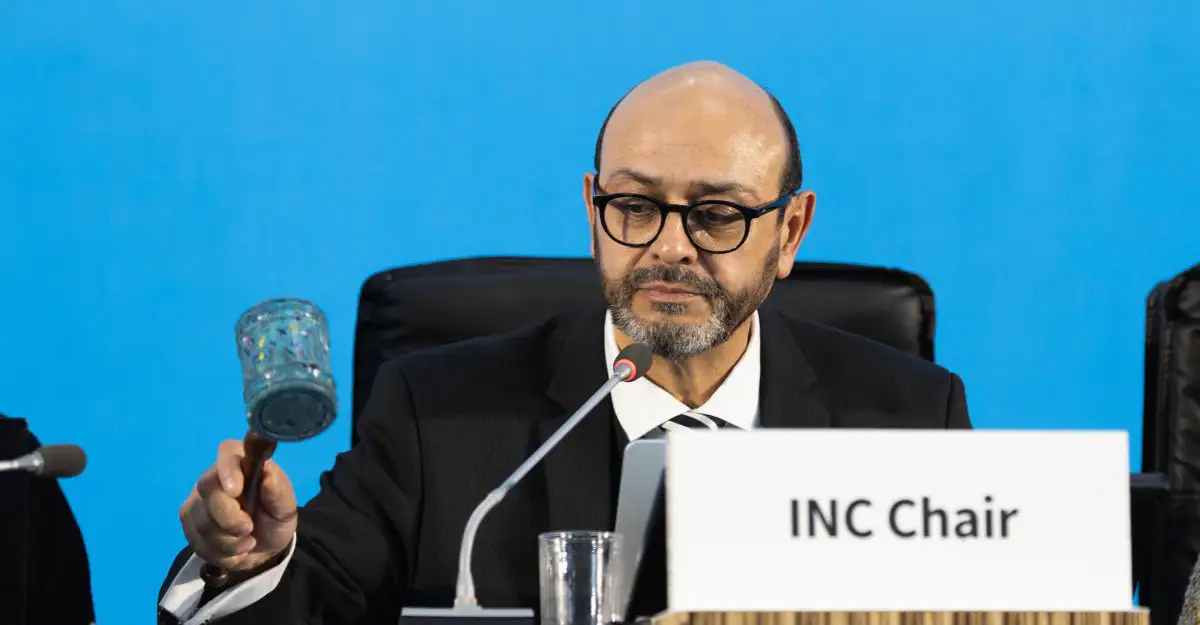The tug of war on plastics: why the Global Plastics Treaty talks stalled.
Imagine a giant tug of war—on one side, a team determined to pull humanity towards a healthier, less polluted future. On the other side, a team digging its heels into the dirt, resisting change to protect its interests. Last week’s Global Plastics Treaty negotiations were such a contest, and despite some inspiring teamwork, the rope barely moved.
At the heart of the talks was a crucial question: how can we address the plastics crisis in a way that protects both people and the planet? While around 100 countries rallied behind the “Stand up for Ambition” statement – championed by Rwanda – their ambition was blocked by petrostates.

Caption: After Rwanda called on all those supporting an ambitious treaty to stand, the plenary erupted in applause. Credit: IISD Earth Negotiations Bulletin.
What’s at stake? Your health and our future
Plastics aren’t just littering our oceans and landscapes – they’re leaching toxic chemicals into our bodies. These chemicals, some of which are linked to serious health issues like hormonal disruptions and cancer, aren’t removed in recycling. They’re baked into the very fabric of our everyday lives.
The ambitious coalition of nations argued for bold measures:
Cutting plastic production
Less plastic means fewer chemicals leaching into our food, water, and air.
Addressing chemicals of concern
Eliminating harmful additives can protect future generations.
Ensuring fair financing
A fee on virgin plastic polymers would make manufacturers accountable for their fair share of the plastics crisis.
But petrostates insisted on keeping the treaty’s focus narrow – only on waste management, sidestepping the root causes of the plastic crisis.
A voice from the frontlines
During the lengthy negotiations, 17-year-old Aeshnina Azahra (Nina) from Indonesia delivered a heartfelt plea to delegates as a representative of the “River Warrior” movement. She spoke of the profound harm caused by plastics in her community, where microplastics have infiltrated even the most sacred spaces.
Holding up a baby doll encased in plastic, Nina said, “The safest place for humans – a mother’s womb – is not safe anymore.”
Her message was clear: the plastic pollution crisis is an immediate threat to human health, demanding bold global action.
She urged leaders to cut plastic production and eliminate harmful chemicals, adding, “We, your children, want to live and thrive in a healthy world without microplastic pollution.”
Her voice, alongside others, called for prioritising human health over profit.

Caption: Aeshnina Aqilani of Break Free from Plastic addresses the room. Credit: IISD Earth Negotiations Bulletin.
A glimmer of progress
Despite the roadblocks, the session concluded with the presentation of the “Chair’s Text.” This document gathers ideas proposed during the talks and, crucially, includes measures supported by Minderoo – like tackling chemicals of concern and introducing a primary plastic polymer fee. This text will form the basis of future negotiations, though when and where they will resume remains uncertain.

Caption: INC-5 Chair Luis Vayas, Ecuador, gavels the decisions to resume discussions at INC-5.2. Credit: IISD Earth Negotiations Bulletin.
Why it matters to you
The outcome of these negotiations isn’t just an environmental issue – it’s a health issue. Every day, microplastics and their toxic additives are making their way into our bodies, impacting our well-being. You can learn more about these here. Without strong global action, the tug of war will leave us stuck in the same harmful cycle.
Even as talks stall, the power to shift the balance lies in all of us. Here’s how you can join the fight:
Learn
Understand how plastics and their chemicals affect your health and where these plastics might be lurking.
Speak up
Support organisations pushing for ambitious change. Share information or resources with your family and friends.
Reduce your exposure
Make mindful choices to reduce plastic use. You can find some examples in our ebook, here.
The tug of war for a safer, healthier world is far from over. We must continue to add our strength to the side pulling for change.